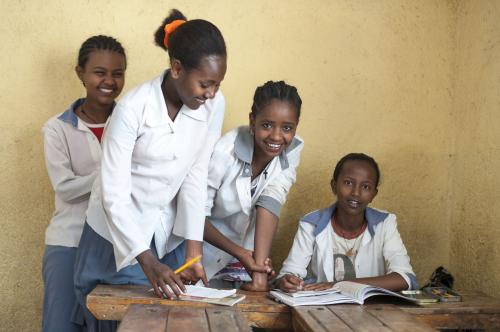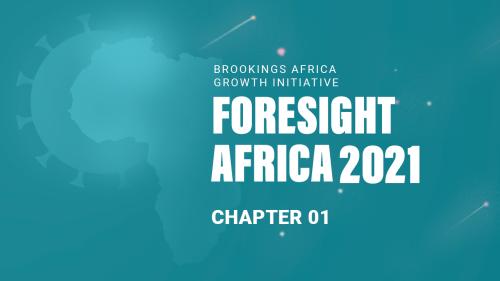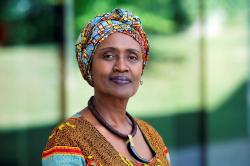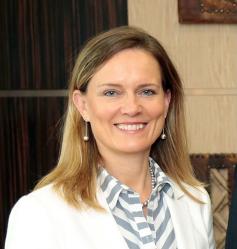As COVID-19 swept through the world, everything changed. Countries, societies, and communities have been reshaped, political and social systems restructured, and new social norms created—all at breakneck speed. The pandemic became the great revealer and amplifier of existing inequalities and unfairness across the world.
Unfortunately, despite impressive global scientific solidarity, global political leadership has been woefully lacking around COVID-19 crisis. On the other hand, most African countries, alongside regional institutions (including the African Union, Africa CDC, African Export-Import Bank, African Development Bank, UNECA), acted swiftly and with solidarity.
Many predicted that the first phase of the pandemic in Africa would be devastating due to the region’s fragile health systems and large immunocompromised populations with a high prevalence of malnutrition, anemia, malaria, HIV/AIDS, tuberculosis (TB), and, more recently, Ebola. However, coordinated leadership alongside rapid introduction and respect for containment measures (including social distancing, isolation and quarantine), national lockdowns and travel restrictions all contributed to case numbers and deaths being much lower than predicted.
Rapid COVID responses were based in part on previous experience of managing other epidemics, such as HIV and Ebola, where communities were central to bolstering fragile health systems to ensure that supplies and medication reached those most in need. However, a worrying second phase of the pandemic is now emerging in the region with new variants and increasing numbers of COVID-19 cases and deaths. Today South Africa, with some of the highest HIV and TB numbers in the world, has the highest number of COVID-19 infections in the Africa.
Importantly, the pandemic is not just a health shock; it also brings deep social and economic costs. Indeed, the pandemic could push up to 40 million people into extreme poverty across sub-Saharan Africa, and African women and girls are being hit hardest. Violence against women and girls has increased. More than 70 percent of women face insecurity, as they more often work in the informal sector as market traders, street vendors, domestic workers, subsistence farmers, or in the service and hospitality industries. School closures, joblessness, and supply disruptions require women to keep homes and communities together, often at personal costs.
Many African countries are now seizing this opportunity for a “great reset.” Such a transformation, though, calls for astute management of complexity, fragility, and urgency on multiple fronts—including emergency responses, recovery plans, and longer-term strategies for sustaining this change. How can this be done?
Enter Africa’s managers, transformers, front-line workers, and caregivers—African women.
Just how are women driving this great reset and transformation?
1. Women leaders driving the emergency response
When faced with emergencies such as floods, droughts, epidemics, or wars, African women traditionally play a leading role as volunteers, community mobilizers, community health workers, or as front-line responders keeping their communities together and combating these shocks.
During the COVID-19 pandemic, women are again now on the front lines as first responders, health professionals, community volunteers, transport and logistics managers, scientists, and more. In one essential role, as community health workers, they are working long hours, often underpaid, and at risk due to a lack of personal protective equipment.
Globally, where women have been in charge of the pandemic response, they have shown that a quick, firm, and empathetic response can save lives and contain the spread of the virus. In Africa, women are the vanguards of the pandemic response in their homes and communities, as entrepreneurs and managers providing care, delivering services and saving lives. They are often transforming governance and accountability at local, national, and global levels, whether as president, prime minister, CEO, government worker, or head of household.
Women activists across Africa have been organizing and calling on governments to address the gender dimensions of the pandemic. To reset, rebuild, and create greater resilience, women’s work, contributions, and leadership during the pandemic must be recognized and rewarded. And to ensure that Africa builds back better, where human rights and gender equality are central, women must be in decisionmaking and leadership positions at all levels.
2. Delivering equitable, gender-responsive, and INCLUSIVE health systems
Across the globe, COVID-19 has demonstrated that, without universally accessible, acceptable, and affordable quality health care, many people will be excluded and left behind. This exclusion comes with social and economic costs to individuals, communities, and countries. And yet, women and girls continue to be underserved, and their rights to health, education, and decent work are systematically violated. The pandemic has demonstrated that when women lead across a health system, they make a difference.
The World Health Organization has designated 2021 the Year of Health and Care Workers. Notably, women are so often at the front lines of health care, a trend that remains true during the COVID-19 pandemic. In fact, globally, 70 percent of the health and social workforce are women. Many remain unpaid or underpaid and undervalued. And gender parity in senior leadership across all facets of health systems is urgently required.
Moreover, given their central role in health care, across Africa, women are leading the call for health workers to be paid a fair wage and serve under safe working conditions to deliver the right to health for all, fight COVID-19, and build resilient and equitable health systems for the future.
3. Educating girls to lead the transformation
Through supportive and safe education, empowered girls are the empowered women of the future.
Alongside the health crisis is an unprecedented global education crisis—a crisis that has become even more urgent under COVID-19. Pre-pandemic figures show that, in sub-Saharan Africa, only 40 percent of girls completed lower secondary school, and even those who attended school were not learning. Now, experts fear that girls will not return to school after lockdowns are over.
Keeping girls in school is crucial—not only is it a right in and of itself, it’s also a means of protecting girls against HIV and becoming child brides and teenage mothers, while also increasing their prospects for securing jobs and higher incomes as adult women. And investing in secondary education for girls is transformational: Child marriage, child mortality, maternal mortality, and child stunting all decline, while national growth rates increase.
Education for children and adolescents, especially girls, must be complemented by a safe and supportive environment, an approach advocated by the new United Nations initiative “Education +.” Central to this initiative is tackling harmful social norms, policies, and laws steeped in gender discrimination and gender injustice that not only make adolescent girls and young women vulnerable to HIV but also negatively impact families, communities, and countries.
4. A Trading Transformation: Welcome to the African Continental Free Trade Area (afCTFA)
Across the world, countries are turning away from global cooperation, leadership, and collective action, and questioning integration. Political dynamics are driving short-termism, polarization, and isolationism. Yet threats like the pandemic, the education crisis, and gender disparities demand long-term thinking and greater cooperation—and in this way, countries across Africa are taking a different approach: While the world is fracturing, the African Union is integrating, deepening ties across the continent, especially through the African Continental Free Trade Area.
This landmark deal has the potential to be transformational for women: Indeed, women account for around 70 percent of informal cross-border traders in Africa. For generations, African women have crossed borders trading in food, textiles, crafts, manufactured goods, and even minerals. Women traders often face cultural, physical, and legal barriers. Furthermore, women more often face pressure to bribe customs agents, who are usually male. A well-implemented AfCFTA will reduce transaction costs, increase profits, and enable informal women traders to operate through formal channels, eliminating gender-based violence and providing a safe working environment.
In the longer term, the agreement could unleash a powerful force of women entrepreneurs across the continent. In addition, a growing manufacturing sector bolstered by the AfCFTA will provide new job opportunities, especially for women. As AfCFTA Secretary-General Wamkele Mene rightly stated, the AfCFTA “will be the opportunity to close the gender income gap, and the opportunity for SMEs [small and medium enterprises] to access new markets.”
5. Innovating across the tech spectrum
During COVID-related lockdowns and quarantines, the internet has been a lifeline to work, education, health information, family and friends, and, at the end of the day, hard-earned entertainment. Moreover. the digital economy offers opportunities for increased productivity, entrepreneurship, innovation, and job creation. It is estimated that by 2025, the internet economy has the potential to contribute $180 billion to Africa’s economy, accounting for 5.2 per cent of the continent’s GDP.
The pandemic has exposed the inherent inequalities in the digital divide between and within countries, including the long-standing gender digital divide, which have exacerbated inequities in education and opportunities. At 37 percent, sub-Saharan Africa has the world’s second-widest gender digital gap (after South Asia), preventing women from accessing life-enhancing services for education, health, and financial inclusion in a world that has become virtual overnight.
Since online tools will be part of the new normal for key sectors, including government, education, commerce, and finance, this digital divide must be bridged.
Moreover, Africa needs a workforce equipped with the digital skills necessary to harness the opportunities of the digital transformation. As the world’s youngest region, Africa will have almost one-fifth of the global labor force—and nearly one-third of the global youth labor force—by 2030.
The leadership role of women in addressing the COVID-19 crisis, increasing education, building equitable health systems, and expanding trade, will be significantly enhanced when women and girls have the online tools that will help to refuel the great reset after the pandemic passes and to transform Africa.
The Brookings Institution is committed to quality, independence, and impact.
We are supported by a diverse array of funders. In line with our values and policies, each Brookings publication represents the sole views of its author(s).








Commentary
5 ways women are driving Africa’s transformation and contributing to a global reset
March 5, 2021